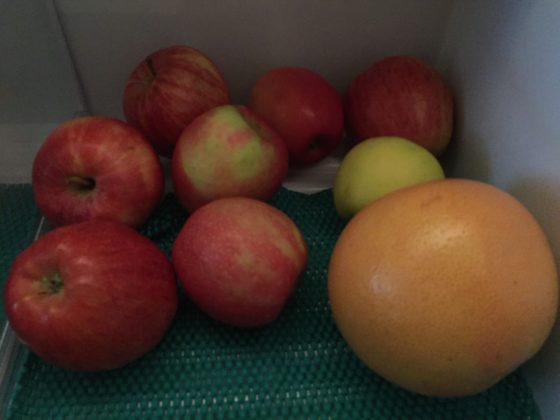
In an episode of the TED Radio Hour, “The Food We Eat,” I learned more about why watching our sugar intake is so important.
One of the speakers was Robert Lustig, a professor at the University of California at San Francisco.
When you consume fruit, such as an orange, you are getting the fiber with it. Fiber is good for you, which is one reason why it’s better to eat an apple or an orange than to drink apple juice or orange juice.
More importantly, fruit juices contain a tremendous amount of sugar.
One orange contains about 9 grams of sugar, just over two teaspoons. A 12-ounce glass of orange juice had 36 grams of sugar (about nine teaspoons), which makes it nearly as bad as a soda!
Imagine that much sugar. If you are a coffee drinker, could you see putting nine teaspoons of sugar in your coffee?
When the fiber is removed and you drink juice (or soda or anything else with that much sugar), the body can’t metabolize it fast enough, so the liver turns the sugar into fat, which leads to chronic metabolic diseases.
The world health organization (W.H.O.) originally recommended no more than six teaspoons (about 24 grams) of added sugar a day. Lobbying, by organizations interested in selling sugar and sugary products, pushed the W.H.O. to change the recommendation to 12 teaspoons (about 48 grams) per day.
High fructose corn syrup is cheaper than table sugar, which is why its use is so common. As a result, sugary foods are cheaper, so more is consumed than would otherwise be the case. (Sugar also affects our brain’s pathways like addictive drugs, which along with its cheap price gives it two things in common with crack cocaine.)
The average U.S. resident consumes 19 teaspoons a day which is why we have an epidemic of type 2 diabetes (the type that can usually be avoided by lifestyle changes).
Most people don’t like the government telling them what to do. “Don’t tell me what to eat,” they might say. Or “Get the government out of my kitchen. I don’t want them to take my freedom. They already take my money (taxes).”
Well, guess what, says Lustig. The food industry has taken your freedom, your wallet, and your health. It’s time to take it back by watching what you eat.
Are you careful to avoid consuming too much sugar? Join the conversation with your comments…
Best regards,
David
UPDATE: A couple of weeks after I posted this, the New York Times published this piece which reinforces the problem with juice (in this case, for babies, but the point is the same).
